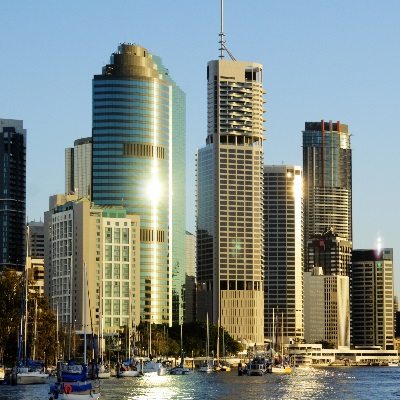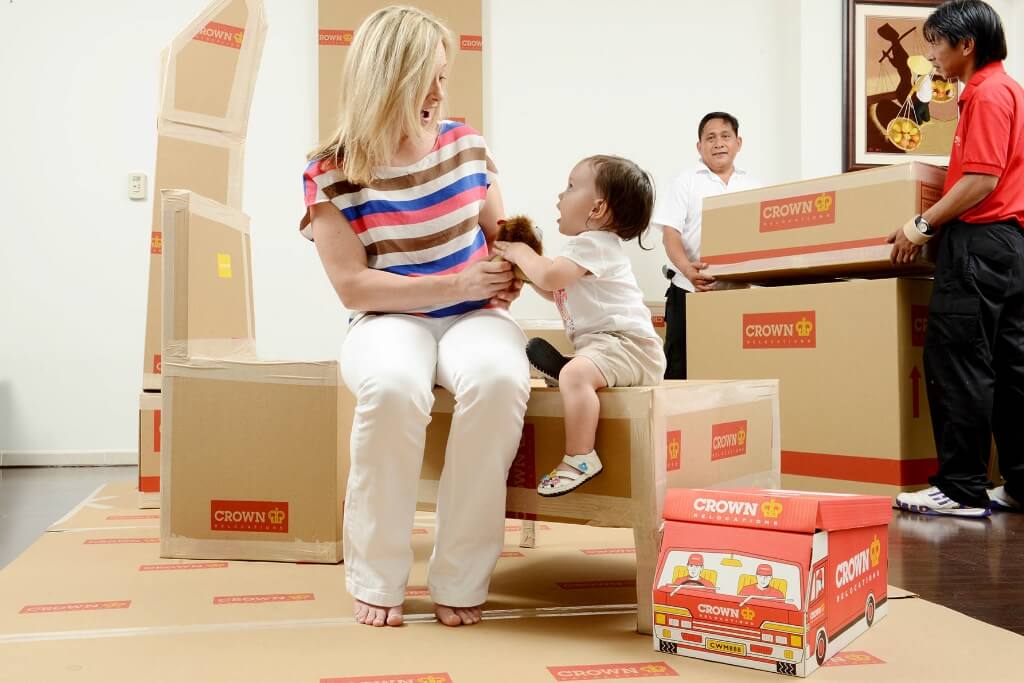Crown Relocations is NZ’s leading moving company.
Let us help you plan your relocation and discover everything Brisbane has to offer.
Crown are an international relocations company specialising in international removals, storage, overseas moving, movers insurance, relocation services and lots more. We will even relocate your vehicle and pets!
Our team is available to answer any relocation questions you may have. They can be reached between 8:00 am and 5:30 pm from Monday to Friday on 0508 227 696 or email [email protected]
Every year thousands of Kiwis make the decision to move to Australia. There is so much to think about when moving to a new country. One of the biggest decisions is which moving company will you choose to pack and relocate your household goods and personal effects. Here are some of the reasons we would like you to consider Crown as your Trans Tasman moving partner. Click here to read more
Read our blog for more tips and information before you go: Move to Brisbane – Why Wouldn’t You!

With a renowned multicultural environment, Brisbane is buzzing with a creative vibe that entices travellers from all over the world. Brisbane’s subtropical climate and passion for arts, culture and sport have helped to make it consistently one of Australia’s fastest growing cities.
The Brisbane River after which the city is named, flows through the heart of the central business district and metropolitan area, providing the town with various ports for trade and beautiful scenery. Crown Relocations offer a genuine, professional ‘one company’ standard and have 50 years experience as a market leader in both New Zealand and Australia, contact us today for your move to Brisbane, Australia!
There are many different kinds of visa that migrants to Australia may be eligible for. For information about which types of visa are available to you visit the Department of Immigration and Border Control website. When applying for visas it is now compulsory to complete a skills assessment form. This form requires personal information based on previous work experience and qualifications, this can be found on the Department of Immigration and Citizenship (DIAC) website.
If you are a New Zealander wanting to live and work in Australia then you are automatically eligible to do so without needing to apply for any kind of specific visa. However a Special Category Visa (SCV) will be assigned on arrival to the country. The SCV allows New Zealanders to live and work in Australia indefinitely. However it does not provide you with the same rights as Australians citizens or permanent residents. New Zealand citizens no longer have an automatic right to a permanent residency in Australia – applications for this must also go through the DIAC.
The currency used in Brisbane is the Australian dollar. Each dollar is worth 100 cents and coins come in denominations of 5, 10, 20 and 50 cents as well as $1 and $2. Notes are $5, $10, $20, $50 and $100. There are many different choices that can be made when it comes to converting currencies. It’s strongly suggested not to take large sums of money or travellers’ cheques with you to convert overseas — this is because banks are known to charge high conversion rates when dealing with cash.
Migrants may find it beneficial to open up an Australian bank account before actually arriving in the country. This also helps to minimise the amount of cash that needs to be carried while travelling. When it comes to opening an Australian bank account without actually being in the country yet, several banks offer application forms that can be filled out online — Commonwealth Bank, Westpac, ANZ and NAB all provide an online sign-up service.
The best way to convert large sums of money is through online transfer companies, who provide a much cheaper rate. Crown has entered into a partnership with OFX to provide an easy, reliable and cost effective solution for clients who are moving their funds internationally. The deals offered by OFX are at super competitive exchange rates and in most cases there’s no fee. The cost structure is so good that the saving you make may even pay for the entire cost of your relocation. To register and for more information visit OFX
Like the rest of Australia in Brisbane you will see drivers using the left-hand side of the road. The speed limit is 50km/h in built-up areas unless stated otherwise and 100km/h on highways or freeways. A valid overseas license allows you to drive in the state of Queensland for up to three months after arriving.
The conditions of this are that you must:
You become ineligible to drive on your overseas license if:
After three months in Brisbane on an overseas license you’re legally required to hold a Queensland State driving license. To obtain a full license you will need to contact one of the local Transport and Motor Service Centres around the Brisbane area.
If you are a New Zealander holding a current New Zealand license then you will not need to pass the written road rules test or the practical driving test to get an Australian license.
Australia is subject to International Driving regulations – which mean that the acquisition of an International Drivers Permit or license allows overseas drivers to continue driving in Australia without further tests or applications, provided that a current drivers license is still held. More can be found out about International Driving Permits from The National Roads and Motorists’ Association website.
In terms of public transport Brisbane City Council boasts one of the largest bus fleets in Australia along with trains and state of the art ferry services. There are also well over a dozen ‘CityCats’ which are modern, sleek ferries as well as nine mono-hull City Ferries, which operate seven days a week and operate along a network of 24 terminals on the Brisbane River, a popular way for people to travel to the CBD. For more information about Brisbane’s public transport services including timetables visit the Translink website.
The standard of education is high across most areas of Brisbane. An estimated 70 per cent of school students in the Queensland state are enrolled in the public schooling system — this is the most common choice for expatriates when it comes to deciding where their children will study. Entry into public schools is most commonly determined by whether you are living in the particular zone or boundary of the school.
Brisbane also has over 190 independently run, non-government schools to choose from. It’s common for these private schools to have waiting lists so it is advised to inquire as early as possible. If you are having trouble deciding on a school do not hesitate to contact Crown Brisbane for assistance. Schools in Brisbane typically run on a four-term schedule: Term 1 goes from late January through mid-April, Term 2 from late April to early July, Term 3 from mid/late-July to late September and Term 4 from mid-October through mid-December.
Public school students often use public transport as a means of getting to and from school. Student concession cards are available for bus and train services in the Brisbane area. Independent schools often provide their own bus systems for students.
Like other cities in Australia, health care in Brisbane is of an extremely high standard. Brisbane has both public and private health care systems. Most residents are covered under Medicare Australia – the government health agency that is responsible for providing public health services. Medicare provides payments and services that can help when you, or someone you provide care for, use health care services or buy medicines.
Eligibility for Medicare depends on a number of factors. You are able to sign up to Medicare if you:
Medicare provides free hospital care and free or subsidised doctor and specialist visits, however many Australians, almost 50% still opt to get private health insurance. This is recommended by the Australian government as private health insurance covers costs which Medicare does not, such as; ambulance use in emergencies and dental care.
If the insurance company you were with in your home country is a member of the International Federation of Health Funds, you may be able to transfer your policy to Australia without penalty — at a similar level of cover. Check with your insurance provider for details.
As Australia’s fastest growing city, certain areas of Brisbane have seen large population increases – the population of the CBD has doubled in the previous five years. Due to this rapid increase there has been a large number of apartment complexes constructed in the CBD and surrounding metropolitan areas of the city.
As well as apartment living there are a range of different types of housing that are common across Brisbane:
Proximity to workplaces and schools are often the deciding factor for expatriates when they are looking for a new home. The most popular areas of Brisbane are; Ascot, Hamilton, Clayfield and Hendra. These suburbs are situated 15 minutes from the airport and CBD with a wide range of private and public schools near by. Other popular areas to live are New Farm and Tenneriffe, which are Brisbane River-side. As well as St Lucia, Indooropilly, Chelmer, Paddington and Bardon which all offer excellent facilities.
There are some restrictions in place when it comes to non permanent residents buying property in Australia, for more information about this please visit the Foreign Investment Review Board website. Expatriates most often choose to rent homes in Brisbane, this is due to high taxes (known as stamp duty) on the purchase of any real estate. When organising a property to rent, landlords typically ask for four to six weeks rent in advance before the collection of keys. There is also a security deposit or bond to be paid before moving in.
For more information on renting a home in Brisbane visit the Residential Tenancies Authority.
The electric current for Australia is 230/250 volts. The electrical Hertz (Hz) is 50 cycles per second, which is compatible with UK appliances. Standard plugs have three flat pins (Australian pattern) and lamp fittings are of the bayonet type. Television and video communications operate on PAL color, System B.
Newcomers to Brisbane most often integrate in to the wider community with ease. It is less common to assimilate into a close-knit group on arrival, however there are multiple newcomer groups that expats can choose to join. Families are typically able to network through either their workplaces or their children’s school and corresponding events such as sports and fundraising activities.
Brisbane has a well-renowned sporting culture and attending sports events is a popular choice for a social night out. The vibrant nightlife scene also offers locals with opportunities to socialise in style. There are also several reputable singles networking associations that arrange evening and weekend activities such as dinners at restaurants, sightseeing and touring.

Crown Relocations has 50 years of experience moving individuals and families to Brisbane and throughout Australia, contact us today for more information about our services. To arrange a quotation call our office for an obligation FREE quote on: 0508 227 696 or you can use our online quote forms: Quote Wizard, Quick Quote or Home Visit Request
To convert your money to Australian dollars the cheapest and most reliable way, check out our guide for Moving Your Money.
IMPORTANT NOTE: Crown Relocations has made every effort to present accurate information. However, regulations, rates and other variables are subject to change and Crown Relocations cannot accept responsibility for the errors that might result. Should you have any questions or need additional information, please contact your local Crown representative.


Hi there, you’ve reached us outside of business hours. Please leave your name and number and we’ll be in touch with you soon.
Hi there, you’ve reached us outside of business hours. Please leave your name and number and we’ll be in touch with you soon.